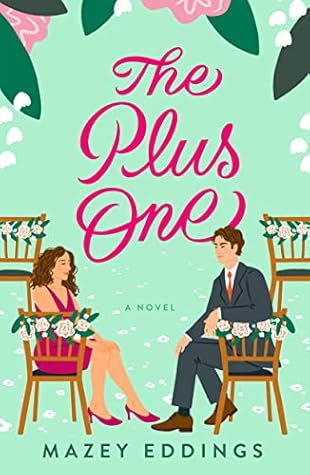More on this book
Community
Kindle Notes & Highlights
It’s surprisingly fun to indulge in the details or something. Get lost in the complex simplicity of it all. It can be … I don’t know, really nice getting caught up in the small things with someone you love.”
“Maturity is a social construct upheld by the patriarchy with an incredibly narrow, white, cis, neurotypical scope to enforce conformity and then implemented as an othering and shaming tactic for anyone that steps outside of that paradigm.”
Your emotional struggles as a human are not a moral judgment of your worth, and they’re not a reflection on your ability to help others.”
“I hate sitting with my feelings,” Indira mumbled. She thought back to all the times she’d told her patients the same exact phrase and wondered how much they had despised her and her advice in those moments. “If sitting with them were comfortable, we wouldn’t let them fester until they infected our hearts and our heads. But we avoid. We throw ourselves into work or vices or others because it’s easier to focus on those things than our own hurt.”
Therapy is scary because it requires you to be brave. It’s one of the most radical forms of self-love.”
The problem with being self-aware and introspective while also being, admittedly, emotionally damaged was that Indira could reason through her feelings and their source and how they didn’t serve her, but she also couldn’t stop the ruminating circles of feeling them.
Because feelings matter. They’re chemicals mixing with experiences and some deep, unknown part of a human soul. They make us who we are and I always wanted to help people find a way to steer their ship when those feelings had them lost at sea.”
“I’m scared,” he finally managed, tears rolling down his cheeks. How could he love her wholly, the way she deserved, if he was nothing but a jagged fragment of who he used to be? “I’m really fucking broken,” he admitted, the words ripped from his chest. “I’m not looking to fix you,” she said, staring straight into his eyes. “I’m here to love you.”
You can hurt and also be loved. You can feel sadness and also laugh and feel joy. Good emotions can coexist with hard ones. You can struggle and suffer and learn to heal while you also love. The best place to start is by giving yourself permission to feel with abandon. Feel everything.”
sometimes,” she whispered against the crown of his head, giving him a soft kiss, “the body needs to laugh instead of cry.”
“It’s okay to sit with the feelings that don’t feel good,” Dr. Koh had said. “It means your body is digesting them, taking what it needs from the sensation and processing the rest to leave you, or guide you on what to do to honor those feelings. Express them to others.
“Living—fully, unabashedly, fearlessly living—isn’t the easy way out, Jude,” she said. “It’s the hardest thing you’ll ever fucking do. Numbing yourself is the easy part. Hiding in self-loathing is the escape.
It’s okay to let go of something that’s hurting you. That won’t ever change the love you had for it. If anything, it will let you preserve that love. But you can move away from something that doesn’t serve you. That doesn’t make you weak, that makes you brave.”
Trauma and happy endings aren’t mutually exclusive. They aren’t even separate entities that have to be experienced at different seasons of life. You can hurt. You can struggle and suffer and learn to heal while doing it. You can stare into the face of your pain and also choose to love.
“Being in love doesn’t fix anything. It doesn’t make me more whole or human than when I was single. But it is a safe, quiet space where I feel brave enough to look at those wounds … Stitch them up myself, no matter how long it takes.”


